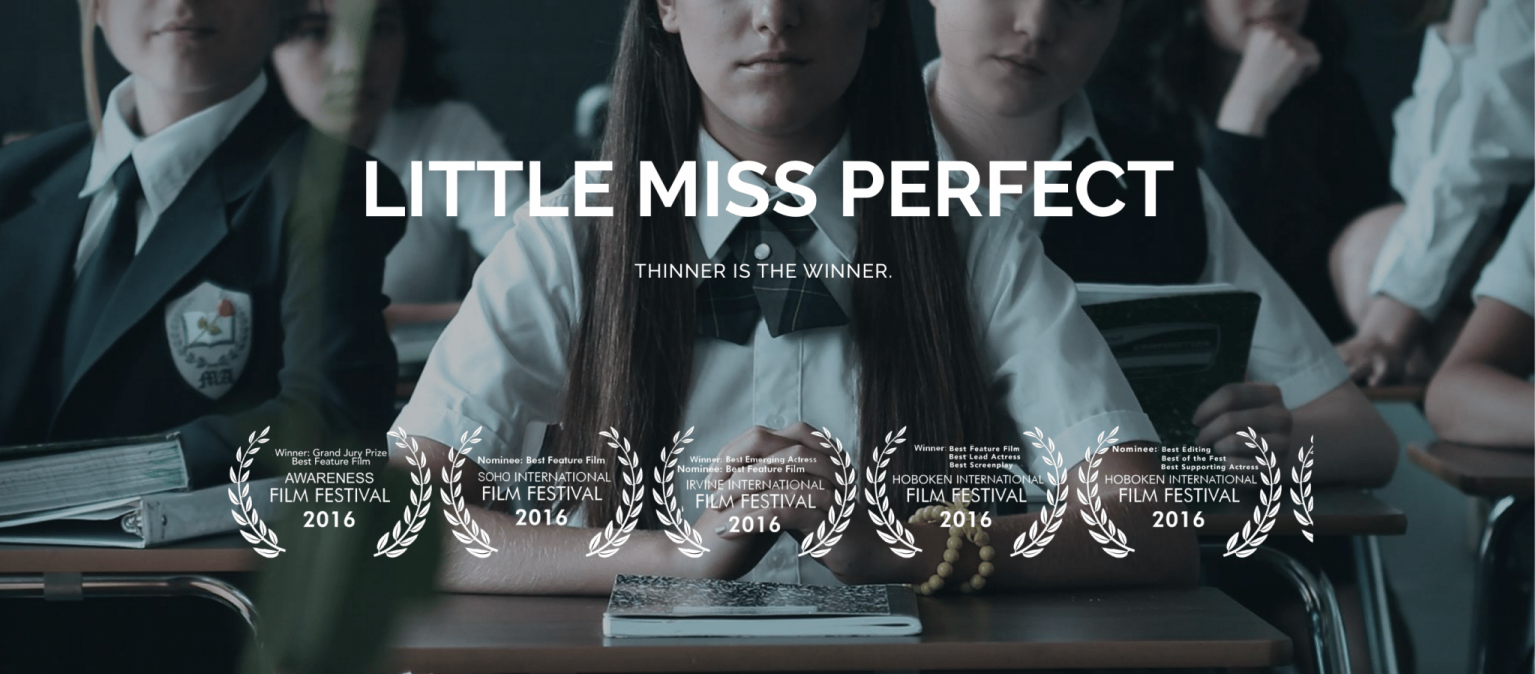“Little Miss Perfect is a feature-length drama that chronicles the life of BELLE (14) an overambitious straight-A freshman. Her newest accomplishment? Class President. Belle seems to have it altogether but as family trouble and daily social academic pressures grow, she seeks a way to control an otherwise chaotic world. Triggered by a blog promoting anorexia and other eating disorders, Belle drops down to an unhealthy weight, a number that wouldn’t even make for a good grade.” –littlemissperfectmovie.com
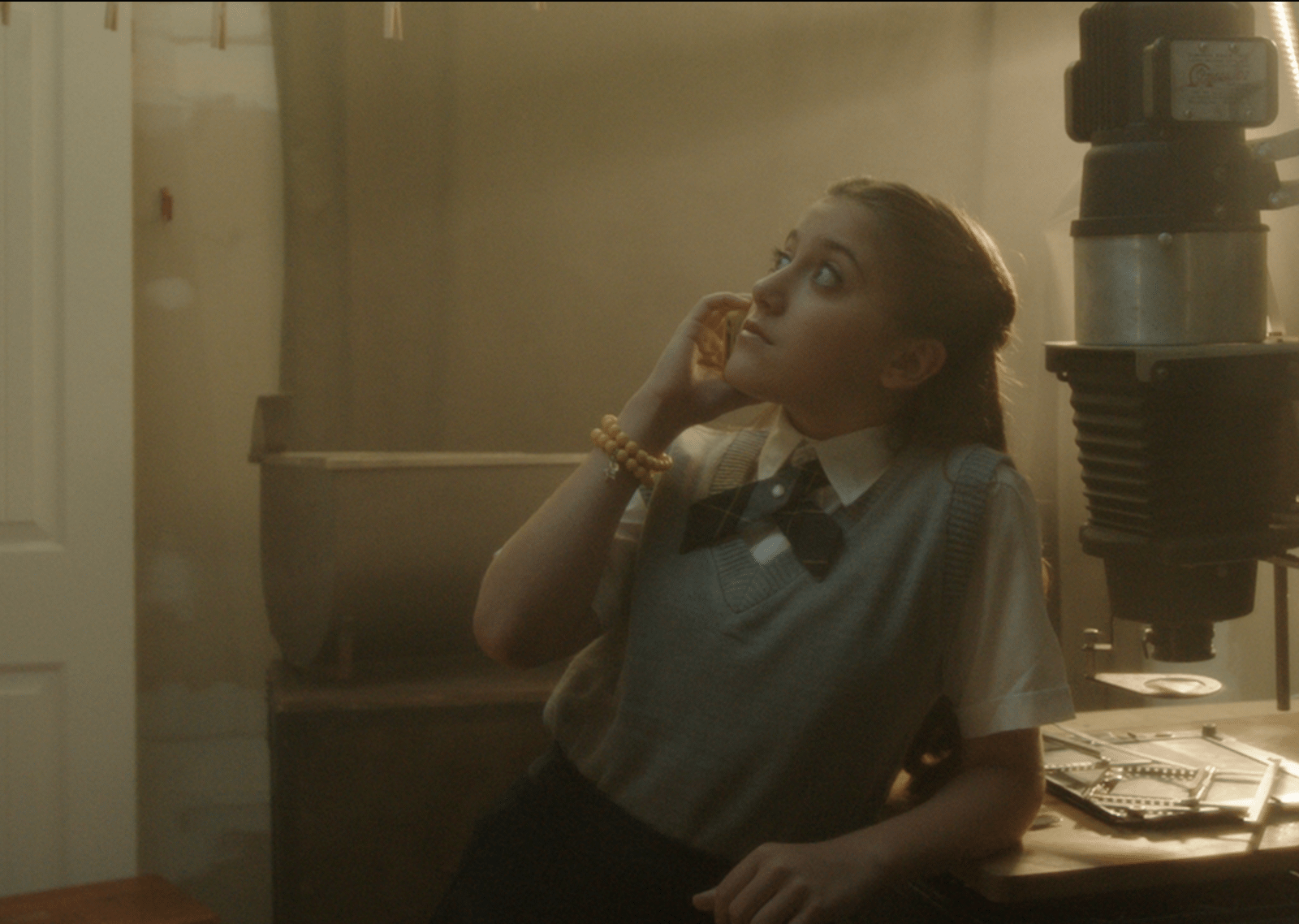
Little Miss Perfect is not your typical directorial debut. Already taking the festival circuit by storm (also winning the Grand Jury award for Best Feature Film at the Awareness Film Festival) and creating quite a bit of buzz on the indie front, Marlee Roberts doesn’t just dip her toes in the water for her first full-length feature… she dives in headfirst. There are plenty of films that depict teenagers, but not many tackle the real issues they face in a seamless and effective way. Roberts not only accomplishes this, but manages to draw you into Belle’s world without a sense of judgement or pity; it simply feels very real. As a result, Little Miss Perfect delicately sheds light on the sometimes taboo-topic of eating disorders, while threading an inspiring message that never once feels preachy. With an impeccable cast, relevant plot, and beautiful cinematography, Marlee Roberts has a “winner” on her hands.
Roberts kindly took the time to answer a few questions I had about the filmmaking process, read on to find out what she has to say!
Thank you for taking the time Marlee! First things first, what is your background in filmmaking, and how did you get started in this industry?
I am fortunate that at a young age, I ingested a whole lot of real-life experience without realizing. Growing up right outside NYC, acting was just another extracurricular activity for me. I started ‘working’ in the industry at three years old and even though I was dealing with very mature and adult work, it never felt like a job. By the time I reached my college years, I had already read tons of screenplays, understood how a set was run, how unions work, how auditions are held, how camera angles and shot choices influence story, etc. My early experience has been invaluable and I was able to complement it with knowledge when I decided to go to film school and learn more technically, analytically and critically. Being able to take control of my career by moving behind the camera has been one of the most rewarding personal decisions I’ve made in my life. And merging my early experience with film school knowledge, I felt comfortable taking the preposterous leap to make a feature film.
I heard in an interview with Justine Magazine that this is your directorial debut, and that you drew inspiration from Beauty and the Beast! Can you elaborate?
Little Miss Perfect began first as an adaptation of the traditional French fairy tale La Belle et la Bete, popularly known in English as Beauty and the Beast. During my freshman year at NYU, I was given an assignment to adapt a fairy-tale and I thought there was something worth exploring in the duality of making “Belle” and the “Beast” one and the same. In the original tale, a curse is put on the Beast and he has to learn someone and be loved in return in order to break the spell. In Little Miss Perfect, Belle has to learn how to love herself. My adaptation of this classic tale borrowed Belle’s studious perfectionist nature and combined it with the Beast’s shame and temper. As I continued developing the screenplay, Little Miss Perfect really became its own story, although we’ve kept some metaphorical symbols that pay homage to the original tale.
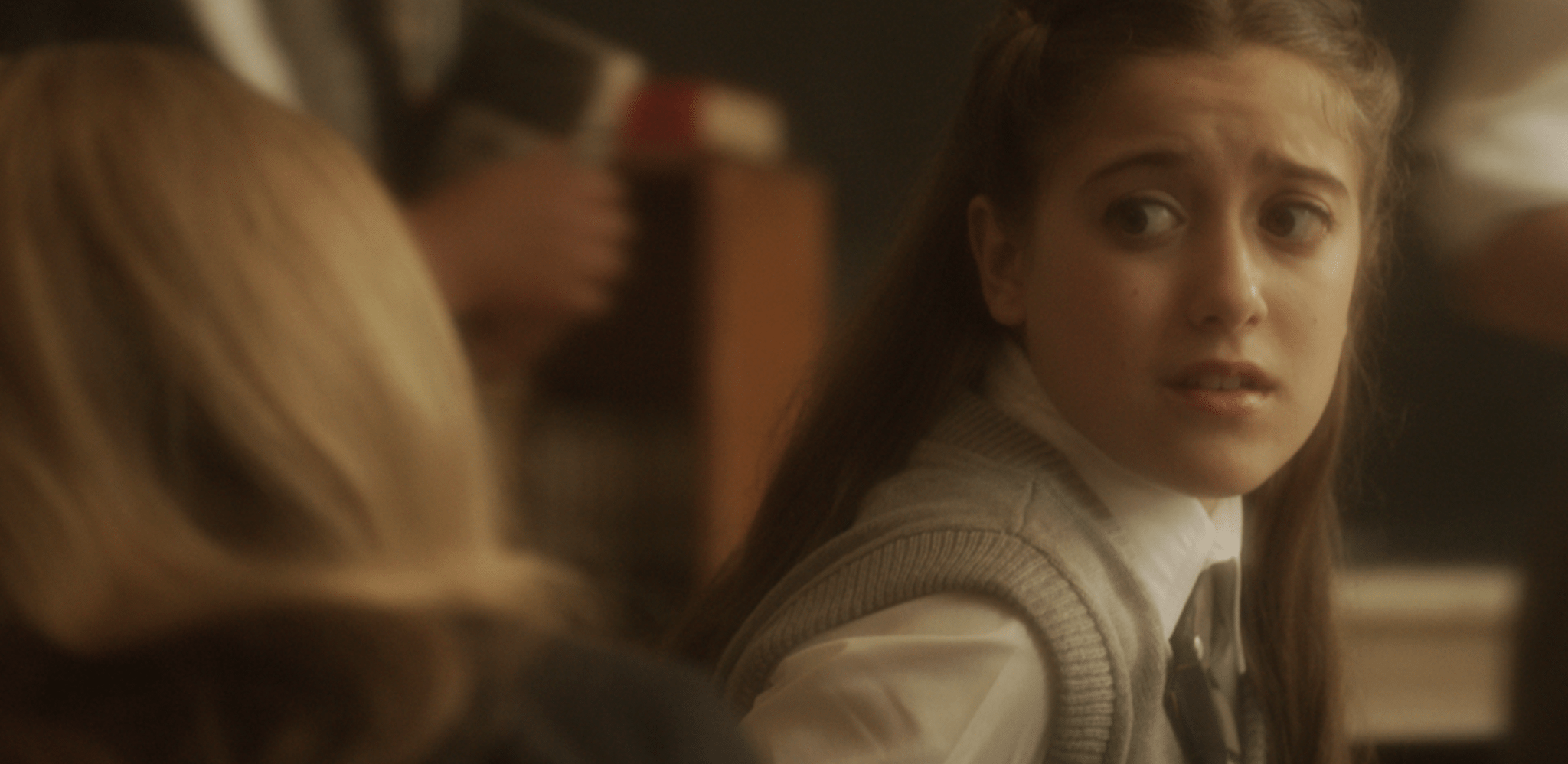
You also mentioned that the lead actress, Karlee Roberts, is actually your younger sister! What are the benefits of making a movie with family?
Karlee and I have always collaborated. We used to brainstorm in the car while stuck in NYC traffic and we’d let our imaginations run wild. We never really understood the word “boredom”. With Little Miss Perfect, I wrote the protagonist Belle by taking little personality traits from Karlee. I observed her interactions with friends and I had her in mind for the role from the initial writing process but we still held auditions for all roles and Karlee did audition just as any other actress.
At the end of the day, working with family (if you get along) can be remarkably rewarding. I’d like to think I know how Karlee works and how to quickly give her the direction she needs to give her best performance. It’s much quicker to know how an actor works before going into production and therefore, not have to worry about the learning curve. I feel really honored and lucky that she wants to collaborate on projects because I truly admire her talent and vision.
You’ve made quite a few shorts before Little Miss Perfect, do you find making a feature to be easier or harder than making a short film?
Hah.. so I directed a few small projects prior to making Little Miss Perfect and from a directing standpoint, I was super confident. I had also produced over twenty short films, eight of which we shot in one semester during NYU and my logic was this: if I added up all those short film shoots I had to handle in that short amount of time, then I could certainly handle a feature which was kind of like all the shorts in one. Boy, was I in for a surprise. A feature film is just fundamentally different than a short film. You are putting together a longer story arc, shot with a much more erratic schedule. The legal and accounting is more complex, the risk for completion is higher, the set dynamic among crew for longer shoots is different. As a whole, professional feature filmmaking is coordinating many more moving parts.
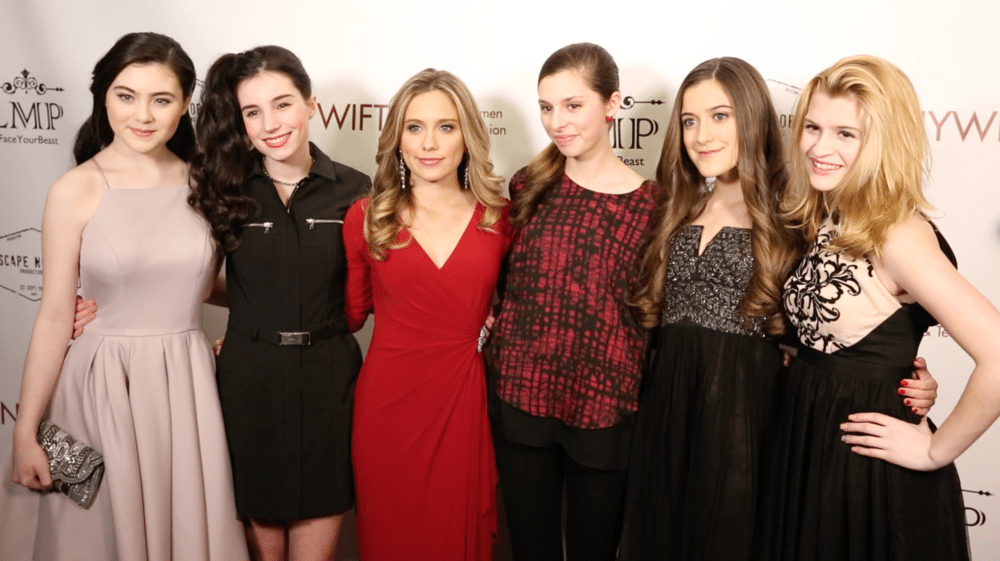
Did you go into making this movie with the intention of spreading a powerful message? What made you want to tackle the subject of eating disorders?
Absolutely. It was paramount that if I were going to tell this story, it would be authentic and do justice in giving a voice to the community it represents. Much like our protagonist Belle, I had accidentally come across some pro-eating disorder material online in high school and felt I connected to the core of what I had witnessed. The posts about control and self-worth resonated with me and I knew I could easily become enamored with this secretive online world that was also relaying unhealthy messages about losing weight as a measure of self-control. So when I got to college, the fairy-tale adaptation prompt sparked the way through which I could continue to explore the themes rolling around in my head. I then worked with clinical psychologists to come to understand the complexity of eating disorders and through my research, also answered a lot of questions about myself. The film touches on social exclusion, family disconnection, and academic pressure – universal themes to which any audience can relate.
What sort of response have you received from audiences that have seen the movie?
My favorite part of the entire filmmaking process is witnessing the audience’s reaction. It’s been much more emotional than I anticipated. When talking to fans, old and new, I’ve heard a lot of people sigh “finally” about a movie coming out that they felt reflected their own story. It’s become evident that they want their voices heard. After most screenings, our Q&As with audiences have revealed that all demographics connect to Belle’s journey, replacing her struggle with a struggle of their own. At the core, we all grapple with control in one way or another.
Without spoiling too much, can you explain what was behind the choice of the mirror illusions in the film?
There are these moments I have sometimes where I catch a glimpse of myself in the mirror and I can’t recognize myself for a moment. It’s fleeting but as I analyzed the feeling in that moment, it fascinated me. I wanted to explore that disparity between our physical and psychological selves and question what that says about us as individuals and as a society. Are we projecting how we feel about ourselves internally so that it reflects how we view ourselves externally? Does our perception of how we look change with how we feel?
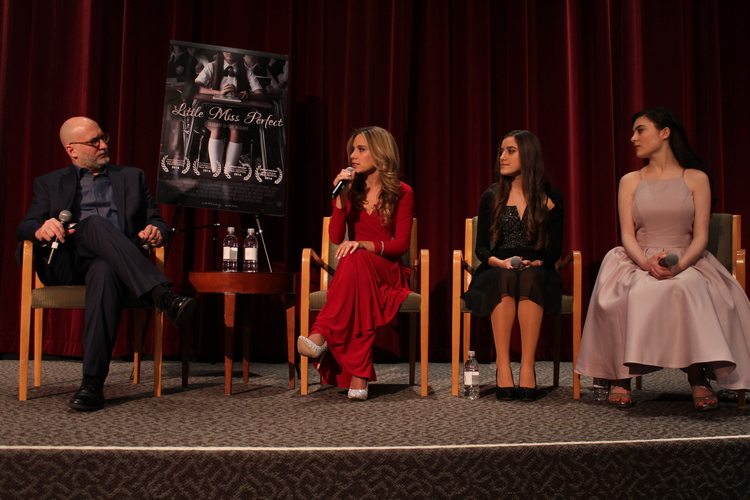
How do you think your perspective differs being a female filmmaker? Have you run into any obstacles being female in this industry?
What I love most about film is the ability to learn through experiencing a character’s emotional journey. My perspective may be different as a female filmmaker, but it’s also different because I’m fairly young in this industry and I grew up in a specific household, went to school in a particular environment, had experiences that others didn’t have, and that in and of itself will make my story-telling very different from my colleagues. Everyone has a unique voice and if each voice by tells an honest story, art has the power of communal empathy-building that I believe is crucial to our well-being as a global society. Therefore, I think it’s crucial to represent voices from all walks of life and the wonderful thing about diversity inclusion in artwork of all forms is the expansion of storytelling to underrepresented perspectives that we as audiences might not have the opportunity to learn about in our day-to-day lives.
Surely, there are never-ending obstacles in the film industry as it’s a tough business to break into in general. There are certainly stereotypes that come with being a female filmmaker but I’m optimistic that if we focus on doing good work, those inherent societal biases will disappear over time.
Do you plan on making more films focusing on specific issues in the future?
I surely hope so. Film is a very powerful medium and I think my voice as a filmmaker tends to use entertainment to engage audiences and enlighten them about specific topics they may not normally know.
Where can people find out more about you and see the film?
- My info: www.marleeroberts.com
- Twitter/IG: @MarleeRoberts
- Facebook: @RobertsMarlee
- Film info: www.littlemissperfectmovie.com
- Twitter/IG: @LMPMovie
- Facebook: @LittleMissPerfectMovie

